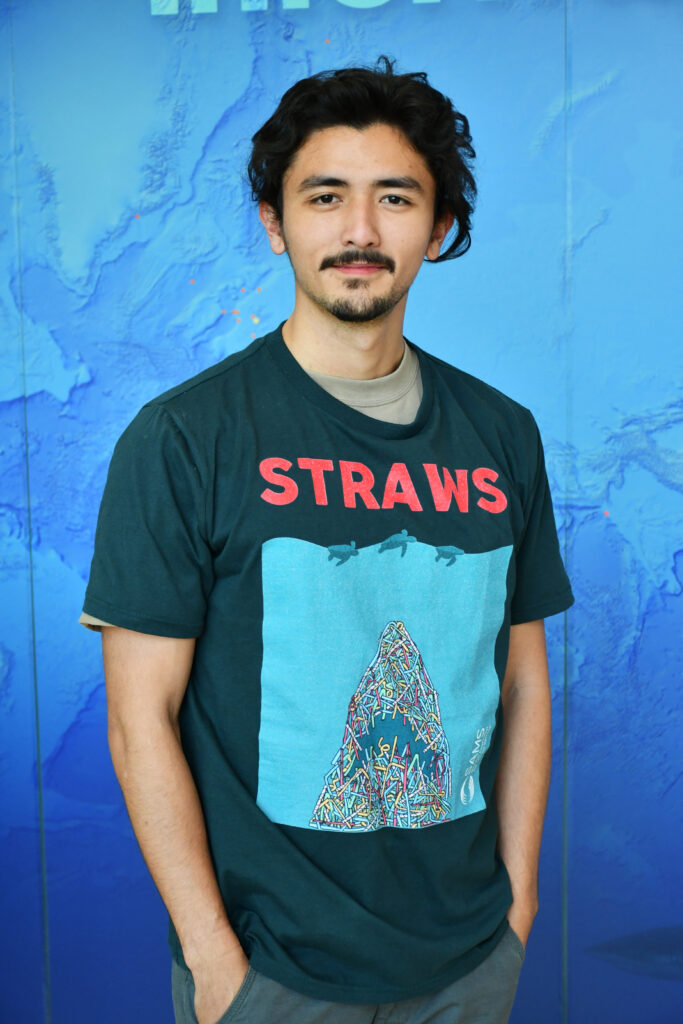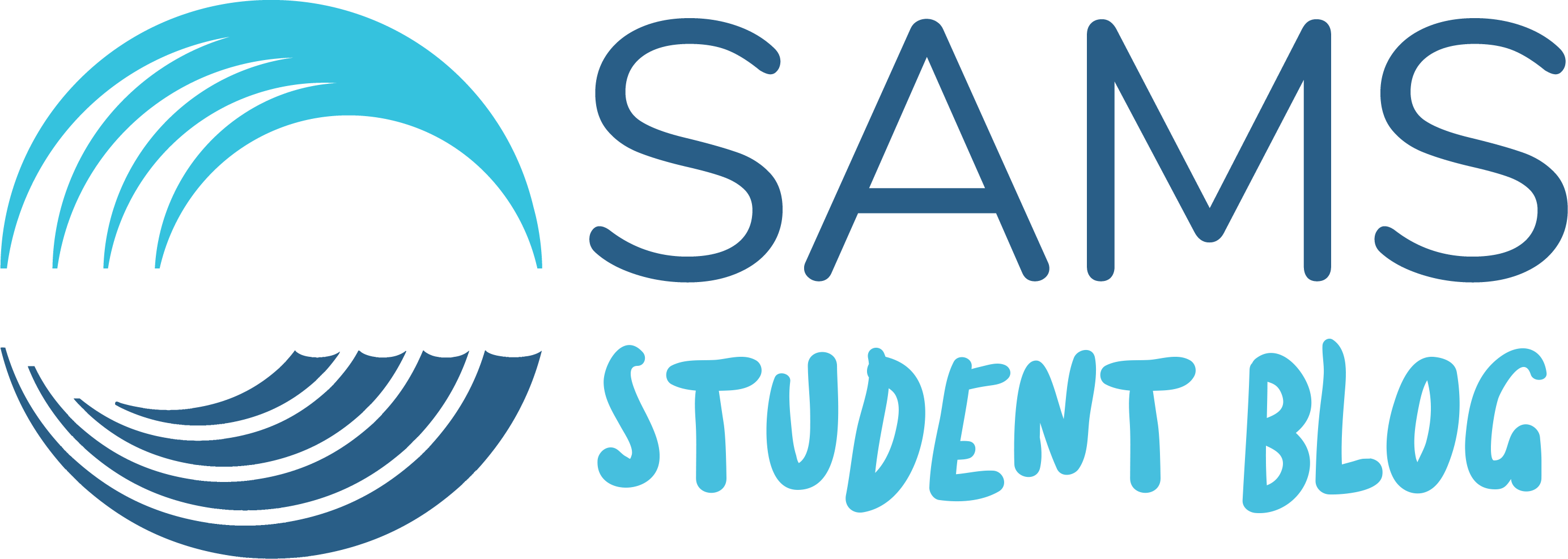There’s no escaping it. You can only delay the inevitable. The sooner you do it, the sooner you’ll be at peace again!
By Ross Lupton, 3rd Year BSc (Hons) Marine Science student at SAMS, UHI.
What is it?
In your third year of the BSc Marine Science programme at SAMS you will be faced with the task of completing your very own Literature Review. It is a compulsory module that is designed to develop and hone your research and evaluation skills, as well as your ability to synthesise and present information.
You essentially take on the role of a seasoned scientist and an investigative journalist at the same time, going to town on as many papers as you can find about the topic of your choice, then scrutinising the barnacles out of them.
Your overall aim is to become a ‘leading edge expert’ on your chosen topic. Nothing a couple of YouTube videos and some clever journal skimming can’t help you achieve.
But besides becoming an expert on your chosen topic, the true objective is to highlight knowledge gaps in the literature. So, instead of just writing about what you learned from reading all those papers, you need to write about what you didn’t learn from reading all those papers. You’re actually (if done well) contributing to the global scientific community by asserting what hasn’t been well studied so you can inform researchers on what areas need further experimental exploration.
Once you shift your mindset to that of a community-benefiting researcher, your productivity will change for the better.
Like in most aspects of life, ‘Critical Thinking’ should be greatly stressed here. As delusional as it may seem, you have to adopt the mindset that you are on par with, and able to critique the scientists that wrote the papers you’re going to review. As an undergrad, you might think it mad to critique and effectively ‘be on par’ with these scientific authors, but the beauty of the power of critical thinking can level the playing field, allowing you to make these researchers accountable for their work. And so here we can start to recognise the importance and real-life benefits of this daunting module. It’s why I decided to write a review about it in the first place.

Why aren’t you excited?
Writing. Writing a lot.
But 5,000 words really isn’t that much.
Plus, the real challenge isn’t the writing, it’s the reading. You will be spending a fair few hours scrolling through dry, figure-heavy papers from sites that annoyingly don’t have a dark mode feature, Google Scholar will become your best friend, and you will pray for an end to the referencing system.
Yet, if you manage to attain the necessary skills and balance your tasks with grace, you will be basking in a newly found aura of scholarly competence that would make even Galileo go, “Damn, he got game.”
I truly believe that those who can manage their time well will find this module the most forgiving. You need to visualise and appropriate your workload realistically because the seemingly endless four months you have for completing your literature review can easily make one complacent in their pace and efforts. Keeping on top of your work will keep the demotivation far at bay.
Personally, my biggest exciter was the possibility of having my review appraised by a publisher. Sure, mine didn’t make the cut, but it didn’t hurt to dream big at all, if anything it helped.
Outline is King
Literature review topics can be extensive and encompassing, and so it is hard to know where to begin. So, start by asking yourself questions about the topic. Ask questions you personally want answered and questions you believe are ecologically necessary to answer. Try to also ask questions that have yet to be answered, this will take some hefty reading but will be most rewarding. Once you have the questions then you can start to outline the structure of your review.
This process of inquiry will also help develop your provisional bibliography – one of the first tasks given to you for this module. Having the right questions in mind can facilitate your paper-reading process; tabulating papers you’ve read based on their date & content and highlighting key definitions within will ensure your bibliography is as relevant and contemporary as possible.
Having an efficient system of note-taking is essential. Keep track of the papers you’ve read and what exactly you’d like to reference from them during the information collation process, so you don’t waste time flicking through open tabs on your browser trying to find that one really decent paper you read a month ago.

The Oral
Nearing the final deadline, you will also be tasked to summarise and present your chosen topic through PowerPoint to your module leader and advisor, either by recorded annotations or in-person.
If you’re like me and struggle with structuring, then this presentation is just what you need. PowerPoint has a specific layout called ‘Outline View’ that indexes your content nicely. This feature and having to allocate my collated Intel into slides really propelled the writing process for me. It helped me rationalise the sequence of my main points, which then became the true framework for my actual Literature Review. The presentation is a great way in visualising your final product, along with ensuring that, at the very least, you have a superficial understanding of your topic and its emerging themes. If you like this approach, then I’d suggest you start this early.
It’s always good practice to vocalise your notes. And presenting with confidence and energy can score you some easy points that will contribute prettily to your final grade.
What I did
You will live and breathe your topic. So, I’d suggest you decide on a topic not on the basis of how easy you believe it would be, but on the basis of how interested/passionate you are about it, and how willing you are to dream about it.
My review was on Cephalopods and their relationship to acoustics – I was thinking about cuttlefish concerts and DJ-ing octopi for weeks! Thus, one night, I dreamt a silent dream that I was sharing a seafood tank with dozens of squid, all darting around me in a flurry of inky panic, all swiftly evading the rubbery grasp for the next serving of calamari rings – all except me.
Basically – be sure of the topic you’re choosing and keep a healthy balance of work.
My review topic was an irregular twist on one of the given choices and is comparably less understood within its field. This proved to be difficult at stages because the available literature was sparse and I often felt that the more I read, the less I understood. Coincidentally however, the obscure nature of my topic, coupled with my innate interest in it, provided enough mystique, motivation, and momentum for me to successfully complete my literature review. So, if you like a challenge, don’t be afraid to step out of convention and venture into the lesser-known domains.
After all, why else are you studying science?

Recent Post
Student Focus – Artemis Eales: MRes Marine
- 18 December 2024
- 6 min read
Student Focus – Evie Whyte, MSc Algal
- 9 May 2024
- 5 min read
Field Trip Reflection: A First-Year’s Experience of
- 2 May 2024
- 5 min read












